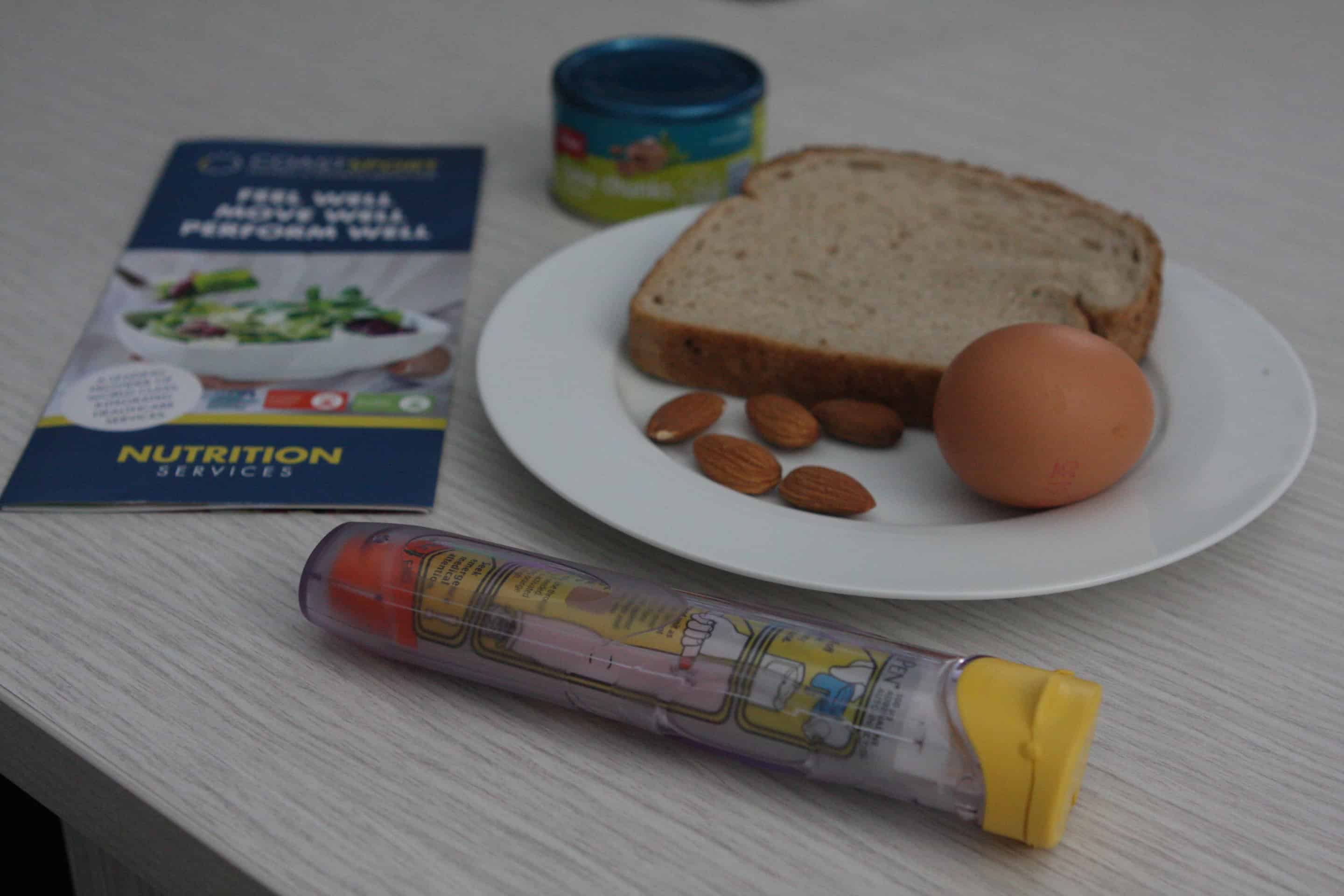icon
The incidence of food allergies has increased considerably in Australia over the past decade with 1 in 20 children having a food allergy. A food allergy is an abnormal immune-mediated reaction to food via ingestion, skin contact or inhalation, resulting in clinical symptoms. An Immunoglobulin E (IgE) mediated food allergy occurs when the immune system releases defensive inflammatory mediators such as histamine in the response to food that should not usually cause any response.
An allergic response can cause:
Itching Pain Reddening Tissue swelling Contraction of smooth muscle Vasodilation Fluid secretionThese symptoms are usually of a rapid onset and are diagnosed with either a skin prick and/or blood test which are usually positive. It is important to note that everyone’s symptoms can be different in combination or severity.
Ninety percent of food allergies are caused by IgE allergens in children such’s as:
Cow’s milk Egg Peanut Tree nuts Wheat Soy Sesame SeafoodChildren with peanut, tree nut sesame and seafood allergies tend not to outgrow these allergies, however cow’s milk, egg, soy and what allergies commonly resolve, with 85% of young children in population-based studies outgrowing their allergies by the age of 3-5 years of age.
Highly restrictive diets may negatively affect nutritional status and interfere with diagnostic procedures such as coeliac disease testing. Inappropriate diets in young children may instigate feeding disorders, which are common amongst children with food allergies and makes a visit to see an Accredited Practising Dietitian appropriate.

When should you seek a Dietitian’s advice?
A person with multiple food allergies Where nutritional adequacy of diet may be at risk A person excluding whole good groups (especially cow’s milk and wheat) from their diet When food allergy exists in conjunction with other health issues or conditions, delayed development or growthThe Dietitian’s role?
While it is not a dietitian’s role to diagnose a food allergy, they assist clinical immunologist with identifying triggers by:
Obtaining detailed diet history and assessment Providing dietetic support for oral food allergen challenges used to confirm an allergy, or determine is an allergy has resolved Supervising restricted diets and providing nutritional support to minimise the risk on nutritional compromise Provide support, personalised advice and enhance family’s confidence with assisting children with allergiesChildren with a food allergy are most likely to have impaired growth compared to non-allergic children with the greatest impact seen in those with cow’s milk, what or multiple food allergies. For this reason, it is important to monitor growth and nutritional intake of children with allergies until 2-3 years of age or until growth and intake has stabilised and the family is able to self-manage effectively and confidently. Current evidence states that children with food allergies have a better nutritional intake with dietary support as they age.
Book an appointment at Coast Sport by calling 4356 2588 or book online via the button below.
Coast Sport dietitian Ali has lived with a nut allergy her whole life and is passionate and experienced to assist others live healthy and happy lifestyles with their allergies. You can find out more about Ali here.




 Helping the Central Coast Feel Well, Move Well and Perform Well!
Helping the Central Coast Feel Well, Move Well and Perform Well!